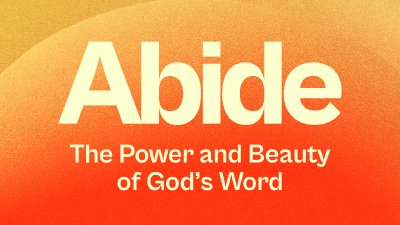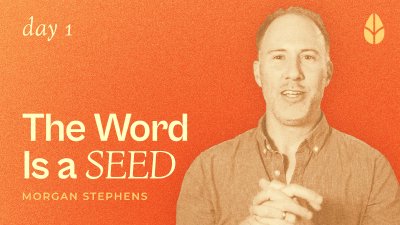Read Jeremiah 23:23–32
“Is not my word like fire, declares the Lord, and like a hammer that breaks the rock in pieces?” — Jeremiah 23:29
The prophet Jeremiah lived during tumultuous times for the nation of Judah. He started his career as a prophet during the reign of King Josiah, the last faithful king, and he continued to prophesy during the final years before Jerusalem was destroyed by Nebuchadnezzar and the people were brought as captives into Babylon.
Throughout Jeremiah’s ministry, he proclaimed the bitter message that judgment was coming, calling the people to turn from their evil and idolatrous ways and to turn back to the pure worship of the one true God. But the people didn’t listen to Jeremiah. Instead, they chose to listen to false prophets, men who spoke attractive messages that reflected what the people wanted to hear rather than declaring the word of the Lord.
Contrary to these futile and hollow words spoken by the prophets, God’s Word is a hammer, capable of breaking the hardest rock to pieces. When you see the word “hammer,” you may think of a carpenter’s hammer that’s used in most projects around the house to drive nails into an object. But in this context, it’s better to think of a blacksmith’s hammer used to forge and shape metal and, when wielded with great force, can crush and shatter an object.
As we walk with Jesus, it’s possible for our hearts to become hardened. This can happen through a secret sin that goes unconfessed, bitterness that comes from unforgiveness, or the cynicism that creeps into our hearts when a prayer goes unanswered. During these times, we may find ourselves endlessly scrolling on social media, reading negative news online, and binge-watching television more than abiding in God’s Word.
But when we open up the Word of God, we experience the weight of his hammer, able to crush and shatter the sin, bitterness, and cynicism of a hardened heart as we respond in humility and repentance.
Reflect:
1. How have you experienced God’s Word softening your heart? Thank him for his power to change your heart.
2. Are there particular moments or hardships that have caused you to follow “false prophets” rather than turning to God’s Word?
Pray:
“Is not my word like fire, declares the Lord, and like a hammer that breaks the rock in pieces?” — Jeremiah 23:29
God, you know my heart better than anyone, and you have loved me even when I have drifted from your ways. Show me how I have drifted and place me back on solid ground. I repent for when I have placed my trust in the things of this world instead of in your Word. Your Word has the power to turn a heart of stone into a heart of flesh. I open myself up for you to mold my life. God, as you soften my heart, empower me to bring your Word to those around me. In Jesus’ name I pray, amen.
GOD’S WORD SOFTENS OUR HEART.

Day 4
The Word Is a Hammer
Jeremiah 23:23–32, Acts 2:37–38
More from
Abide







